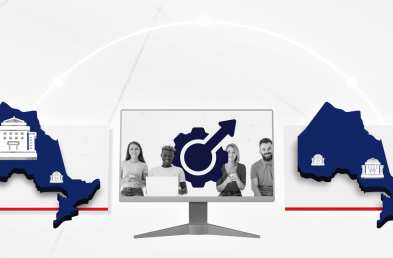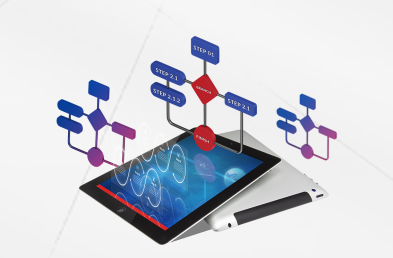The idea of having periodic in-person training sessions is obsolete. It is an effort that creates dead time within your workflow and utilizes resources instead of maximizing its use. In a world where change is constant, and innovation is the lifeblood of progress, organizations and individuals alike must adapt to the paradigm of continuous learning.
The emergence of a learning ecosystem, a dynamic and interconnected web of educational resources and opportunities, has become not just beneficial but essential for staying competitive and relevant in today’s environment.
The commitment to Continuous Learning and Skill Development is a necessity, a requirement that not only answers to the need for growth and evolution of the organization but also to the needs and wants of the employees themselves.
Firstly, the pace of change in technology and industry is relentless. What is cutting-edge today might be outdated tomorrow. To keep up with the rapid advancements in various fields, individuals and organizations must foster a culture of perpetual learning. A learning ecosystem provides the infrastructure needed for this ongoing process, enabling learners to access updated information, acquire new skills, and stay ahead of the curve.
On top of that, the nature of work itself is evolving. The traditional career trajectory of entering a profession, climbing the corporate ladder, and retiring with a gold watch is increasingly rare. The gig economy, remote work, and automation have transformed the employment landscape, making adaptability and continuous skill enhancement paramount. A learning ecosystem facilitates this adaptability by offering diverse learning opportunities tailored to the evolving demands of the workforce.
Additionally, the globalized nature of business and communication requires individuals to be versatile and culturally competent. A learning ecosystem that transcends geographical boundaries, offering a variety of perspectives and insights, contributes to the development of a well-rounded and globally aware workforce. Virtual classrooms, webinars, and collaborative online platforms create opportunities for cross-cultural learning and collaboration, fostering a more inclusive and interconnected global community.
Building a learning ecosystem involves integrating various components that cater to different learning styles and preferences. The traditional model of one-size-fits-all training sessions is replaced by a diverse range of resources, including online courses, webinars and workshops, podcasts, and interactive simulations. This variety ensures that individuals can choose the mode of learning that aligns with their preferences and schedules, promoting engagement and effectiveness.
Integrating technology is the cornerstone.
Online platforms and digital tools provide accessibility, flexibility, and scalability. Mobile learning applications, virtual reality simulations, and artificial intelligence-driven personalized learning experiences enable individuals to learn at their own pace, anytime and anywhere. The integration of analytics and data-driven insights allows organizations to track progress, identify areas for improvement, and tailor learning experiences to individual needs.
Collaboration is another key aspect of a successful learning ecosystem. By fostering a culture of knowledge sharing and collaboration, organizations create an environment where individuals can learn not only from formal training but also from each other’s experiences and expertise. Social learning platforms, discussion forums, and collaborative projects facilitate the exchange of ideas and insights, creating a rich learning environment that goes beyond individual capabilities.
It’s clear that the benefits of a learning ecosystem extend beyond individual skill development. Organizations that invest in continuous learning see improvements in employee satisfaction, retention, and overall performance. A skilled and adaptable workforce is better equipped to navigate challenges, innovate, and contribute to the organization’s success. Also, a learning-focused culture attracts top talent, as professionals seek environments that prioritize their growth and development.
The shift from learning events to continuous learning ecosystems is a necessity in the face of the dynamic challenges posed by the last few decades of corporate learning development. The imperative to adapt, innovate, and stay ahead requires individuals and organizations to embrace a lifelong commitment to learning.
By building a dynamic learning ecosystem, we not only equip ourselves with the tools to thrive in a rapidly changing world but also contribute to the creation of a global community of lifelong learners, driving progress and innovation for generations to come.




